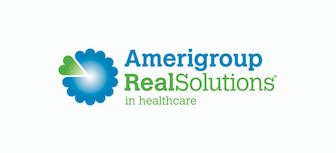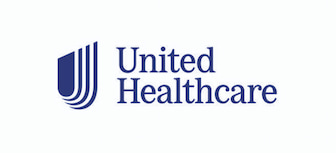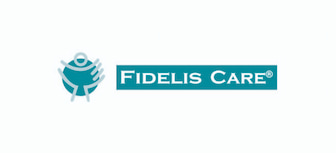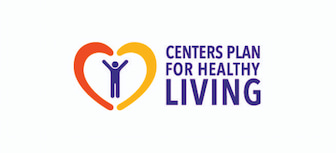What Is Primary Care?
Primary care is the foundation of the American healthcare system. Primary care ensures that you and your family have access to essential medical services for curative and preventive health. Primary care services are focused on maintaining your optimal health. A primary care physician (PCP) is tasked with providing these essential services as your first point of contact for accessing comprehensive and coordinated medical care.
Your PCP performs routine checkups, health tests and screenings, as well as chronic disease management. Your PCP makes referrals when you need to see a specialist. If you’re young and healthy, you should still visit your PCP for an annual physical exam because catching diseases or ailments early usually means more successful outcomes.
If you’re feeling sick or have a condition that isn’t clearing up on its own, your doctor ensures you receive timely and effective treatment. Book an appointment today with a primary care doctor near me to stay healthy and fit. Build a relationship with a doctor who gets to know you, including your past and present health issues.
What’s the Role of My Primary Healthcare Doctor?
Primary care doctors help you maintain good health, while preventing or managing chronic diseases. Primary healthcare acts as a societal approach to provide the health and well-being services for your community. You can contact your primary care doctor during regular business hours for any non-emergency medical care.
Besides providing access to healthcare, there are a number of benefits of selecting one primary care doctor, including:
- Timely and effective treatment for simple illnesses
- Reduced risk of chronic diseases because of early detection and prevention
- An enhanced quality of life if you’re sick by treating your symptoms
- Reduced healthcare costs by minimizing hospitalization
- Access to more comprehensive services through the coordination with specialists
Who Can Be a Primary Care Doctor?
Any medical doctor (MD) or doctor of osteopathic medicine (DO) who’s appropriately certified and licensed can offer primary healthcare services. Some medical practices appoint a nurse practitioner or physician’s assistant to the role. Primary care isn’t limited to a specialty, so professionals in different fields of medicine can offer primary care, as long as they’re willing to provide general medical services.
Many medical doctors start out as general practitioners before specializing, so they’re able to provide general primary care.
But those who specifically play the role of primary care doctors tend to include:
- Family doctors, who treat patients of all ages
- Internists or generalists, who usually treat adults
- Pediatricians, who specialize in treating children
- Geriatricians, who treat older adults
- OB-GYNs, who treat women once they reach childbearing years
- Nurse practitioners and physician’s assistants, who aren’t doctors, but can diagnose and treat the most common ailments
What Services Does My Primary Care Doctor Offer?
Primary care doctors provide comprehensive and coordinated healthcare. Your PCP is your first point of contact to deliver a broad range of services. When you need a routine health checkup, help managing a chronic condition or a solution to a particular pain or ache, visit your medical doctor. Since some PCPs double as specialists — such as pediatricians or OB-GYNs — they also offer those particular services.
It’s possible that the only healthcare you ever need is through your primary care doctor. Your family doctor is also responsible for diagnosing and treating illnesses, offering preventive measures and delivering health education and advice. Unless you have a medical emergency like an accident or develop a chronic condition like diabetes, you may never require the services of a medical specialist.
The range of services for all primary care doctors includes:
- Routine annual physical exams, tests and screening
- Vaccinations
- Diagnosis and treatment of acute illnesses
- Treatment for common illnesses, such as the common cold and flu, fevers, skin issues, urinary tract infections and sexually transmitted infections
- Allergy treatment
- Care for muscle pain, sprains and strains
- Chronic disease management for conditions such as headaches and diabetes
- Health education and counseling for healthy habits and desirable lifestyle changes for optimal health, including good nutrition and weight management
- Coordination with medical specialists for referrals, specialty services and follow-up care
What Education and Training Do Primary Care Doctors Need?
Primary care doctors undergo some of the most rigorous career preparation in the world. In the United States, a medical doctor requires a minimum of 11 years of education after high school. But earning an advanced degree, a Doctor of Medicine (MD), is just the first step. PCPs must then complete an apprenticeship, where they work in a supervised, real-life setting with actual patients.
The final step is to be licensed in the state where they set up their practice. This extensive preparation helps ensure that all medical professionals in the country can provide the best healthcare available.
Are there still some bad doctors? Yes, but you can weed them out by making sure they have:
- Earned a Doctor of Medicine (MD) or Doctor of Osteopathic Medicine (DO) degree
- Completed a residency program in a recognized healthcare institution
- Obtained a license to practice in your state
- Received board certification from a medical professional organization, such as the American Board of Internal Medicine
- Met the continuing education requirements to stay up-to-date with evolving medical knowledge and technology
Note that some PCPs are not doctors. Physician’s assistants and nurse practitioners have not earned an MD or DO degree. They have, however, completed advanced education, and they’ve been accredited and licensed by appropriate medical and state organizations. When in doubt, ask them about their credentials.
How Do I Choose a Primary Care Doctor?
Getting the right doctor — whether a nurse practitioner, internist, family doctor or geriatrician — ensures you get personalized, effective and timely medical services. Start your search by looking for a primary care doctor near me. Then decide what type of services you’ll likely need. For example, if your child also needs healthcare, work with a pediatrician or family doctor. Alternatively, choose a doctor in a specific medical field, such as women’s health.
To narrow your choices, find a doctor who speaks your language and has an office near your home or work. Since your PCP is in charge of your well-being, choose someone with whom you feel safe and can be honest.
Other considerations include:
- A pleasant personality and effective communication style, including good listening skills
- Insurance options and payment plans, including accepting your health insurance policy
- Weekend or after-hours appointments for your convenience
- A competent, friendly staff that make you feel welcome
- A facility with modern equipment and a pleasant environment
What Can I Expect During a Visit to a Primary Care Doctor?
When you visit your primary care doctor, you can expect courteous, comprehensive and personalized services. Most often, you begin by booking an appointment, although some practices allow walk-ins, especially in the case of an emergency. With an appointment, you shouldn’t have a long wait.
If this is your first visit, expect to fill out a questionnaire about your past medical experiences, as well as the reason for your visit.
Once you’re called to see your doctor, the visit routinely includes:
- Detailed questions about your and your family’s medical history
- Routine screenings, including height, weight, blood pressure and temperature
- A complete physical examination, including your heartbeat, lung capacity and lymph nodes
- An exam of any unusual symptoms that brought you in to see the doctor
- Diagnostic testing or screenings — such as x-rays, Pap smears or blood tests — to confirm or disprove a diagnosis
- A diagnosis of what’s troubling you, especially if you’re ill and need treatment
- A referral to a specialist if needed
Your primary care doctor acts as a central point for all test results. During repeat visits, your primary care doctor reviews your file before seeing you. It’s an advantage when your personal PCP knows you and your history, as potential problems are easier to spot.
How Can I Get the Most from My Consultation with a Primary Care Doctor?
Become an active and informed participant in your consultation. You must be honest and detailed about your medical history, symptoms and health concerns. Your family doctor or physician’s assistant serves you best when they have a clear picture of what’s ailing you. Only after an accurate diagnosis can your primary care doctor draw up a personalized treatment plan that’s going to be effective.
Your PCP often takes the time to review with you what the diagnosis means, how your treatment may begin and how long it takes. Once you learn what’s involved, it becomes easier to ask pertinent questions and understand the value of follow-up care.
To get the most from your visit, consider:
- Writing down questions and concerns to discuss with your doctor before you arrive
- Gathering your past medical records, including a list of all the prescriptions and vitamins you’re currently taking
- Asking your questions and making sure you understand the answers
- Seeking clarification on your diagnosis and treatment
- Taking notes if necessary, so you can refer to them later or use them during a meeting with a specialist
What Are the Limits of Primary Care?
While primary care doctors are highly trained, experienced and knowledgeable, there are limits to their expertise and resources. Certain medical situations may be beyond their field of expertise. For example, an OB-GYN is an expert in gynecology, but can’t fully help you if you have cardiovascular problems. In such a case, your PCP refers you to a cardiologist or a vein specialist.
The resources available also limit your primary care doctor from performing some medical procedures. For example, a typical family doctor’s office doesn’t have a fully equipped surgical center. So if you need any type of surgery, your PCP recommends that you visit a surgeon or healthcare institution with these facilities.
Primary care doctors usually don’t treat conditions beyond the scope of their expertise, such as:
- Complex or rare medical conditions
- Highly infectious diseases
- Emergency situations that require immediate surgery or specialized treatment
- Advanced diagnostic and testing procedures that require specialized equipment
- Conditions that require a specialist, such as a urologist
- Situations that require intensive care or life support apparatus
How Do Primary Care Doctors Collaborate with Other Healthcare Providers?
Primary healthcare is often a collaborative effort. Primary care doctors work with other medical professionals, usually specialists, to ensure your best health outcome. When your internist, nurse practitioner or geriatrician refers you to a different doctor, it’s so you can receive seamless and timely medical services. Some practices even have multiple specialists in the same building.
The collaborative nature of healthcare in the U.S. is vital. Your PCP is just the first point of contact for your healthcare needs. If your primary care doctor determines that the best course of treatment for you needs to be delivered by a specialist, you need that type of service.
Some of the healthcare professionals you may see in addition your primary care doctor include:
- Specialists, such as oncologists, urologists or cardiologists if you require specialized treatment
- Hospital administration staff for hospitalization or specialized tests, when required
- Community resources, such as social services to get the services you need, if your situation requires it
- Other healthcare providers, such as nurse practitioners or physician assistants working under the guidance of your medical doctor


 My BestDoc
My BestDoc
 Future Appointments
Future Appointments
 Settings
Settings
 Sign out
Sign out










